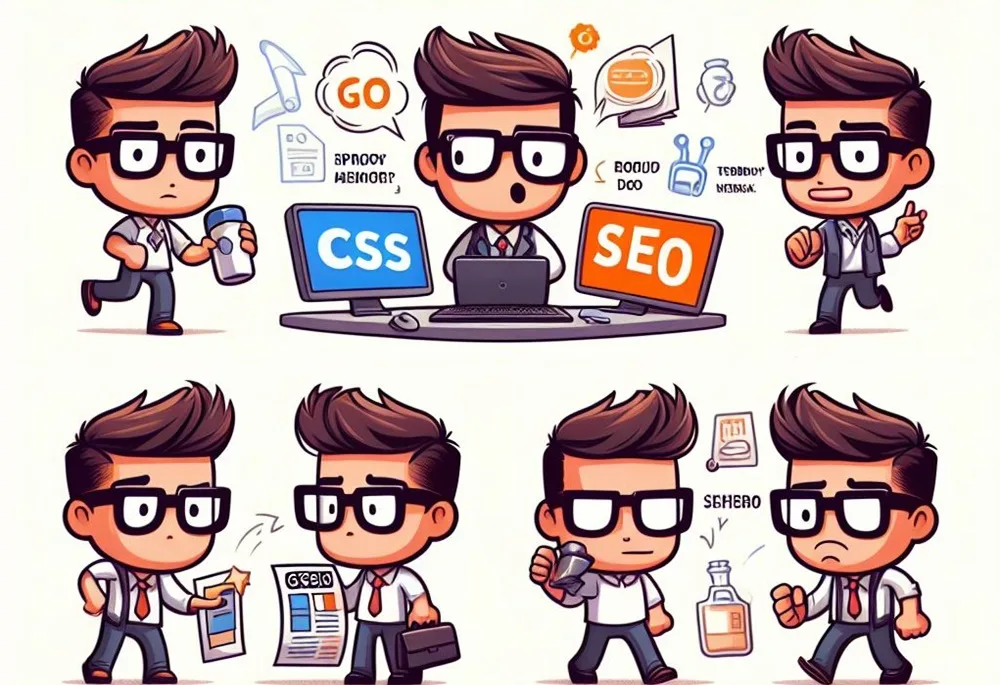The Full Guide to B2C SEO
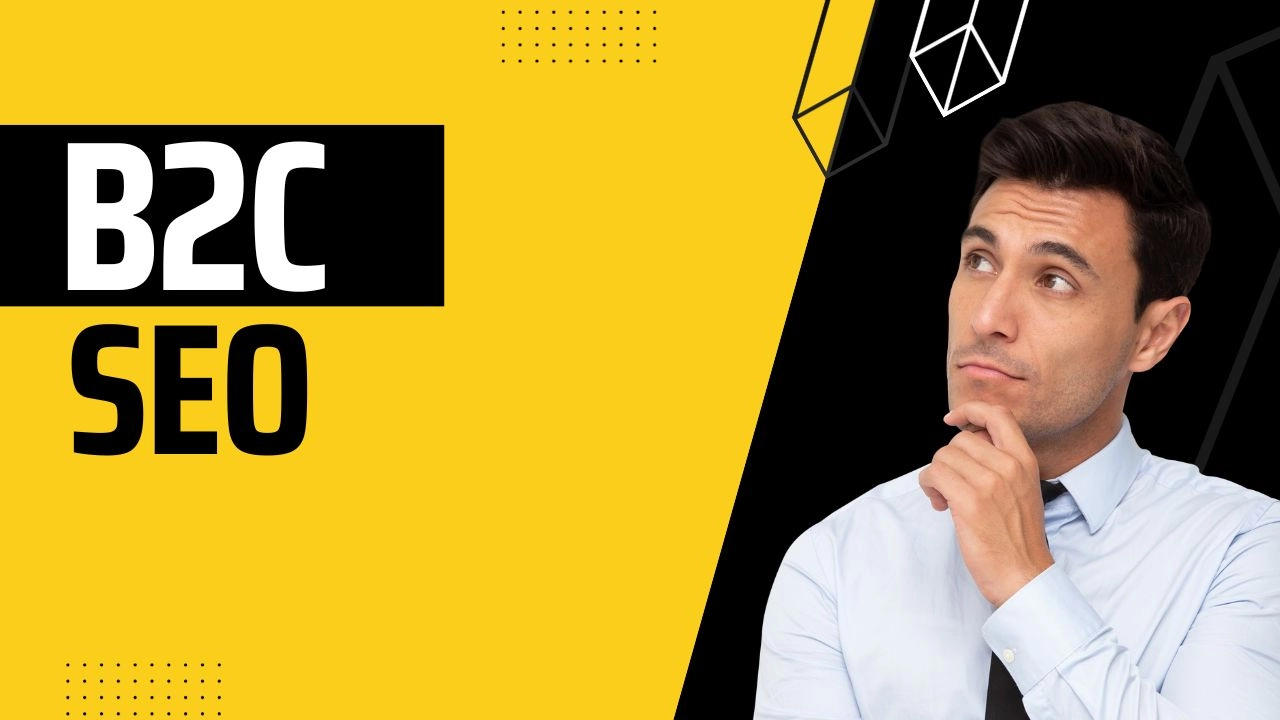
B2C SEO, or Business-to-Consumer Search Engine Optimization, is the process of optimizing a business’s online presence in order to increase its visibility and attract potential customers.
This article will provide a comprehensive guide on B2C SEO, covering everything from the basics to advanced strategies.
Table of Contents
What Does B2C Mean?
B2C stands for Business-to-Consumer, which refers to businesses that sell products or services directly to consumers.
This is in contrast to B2B (Business-to-Business) companies that sell their products or services to other businesses.
Examples of B2C companies include retail stores, e-commerce websites, and service-based businesses such as hair salons, cleaning services, plumbers, locksmiths, and more.
What is B2C SEO?
B2C SEO is the process of optimizing a business’s online presence to attract potential customers who are searching for their products or services.
This includes implementing various strategies and techniques (which will be detailed later in the article) to improve the website’s search engine rankings, making it more visible to potential customers.
B2C SEO requires a different approach and strategies compared to B2B SEO, as the target audience and goals are different.
The demand for B2C SEO services has increased significantly in recent years, as more and more consumers turn to search engines like Google to find products and services.
Why is SEO important for B2C?
Search engine optimization (SEO) plays a vital role for B2C businesses as it facilitates the attraction of potential customers and drives increased sales.
As more and more consumers turn to search engines like Google and Bing to find products and services, having a strong online presence is essential for B2C companies.
A high ranking on search engine results pages (SERPs) can lead to increased website traffic, which in turn can lead to more conversions and sales.
Moreover, having good reviews and ratings on search engines can also build trust and credibility with potential customers.
B2C SEO Strategy
As mentioned, the strategy of a successful B2C SEO campaign differs from B2B SEO.
Here are some key elements to consider when creating a B2C SEO strategy:
Know Your Target Audience
User intent plays a crucial role in B2C SEO.
Understanding your target audience’s needs, preferences, and behavior is essential for creating relevant and valuable content that will drive organic traffic to your website.
Give your clients what they want – show what your services are, prices, reviews, and common questions.
Local SEO
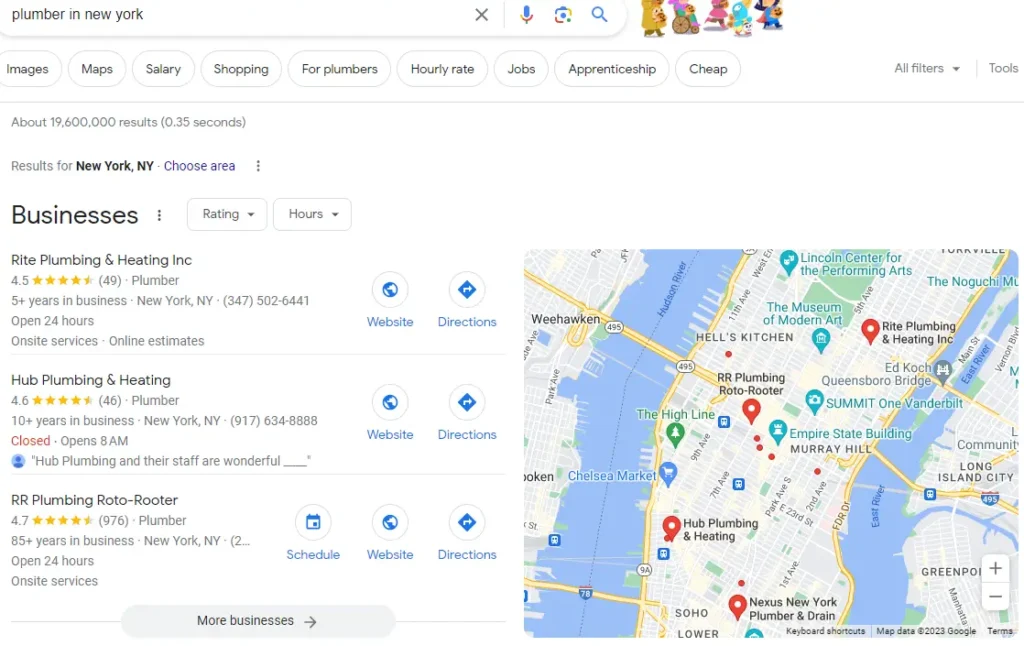
For B2C businesses with physical locations, local SEO is crucial. If you live in NY and need a plumber, you are most likely going to search for “plumber in NY” rather than just “plumber”.
Optimizing your website for local searches will help attract potential customers who are looking for businesses near their location.
This can include creating a Google My Business listing, optimizing your website for location-based keywords, implementing NAP (name, address, phone number) information, and getting listed in local directories.
Google Merchant Center
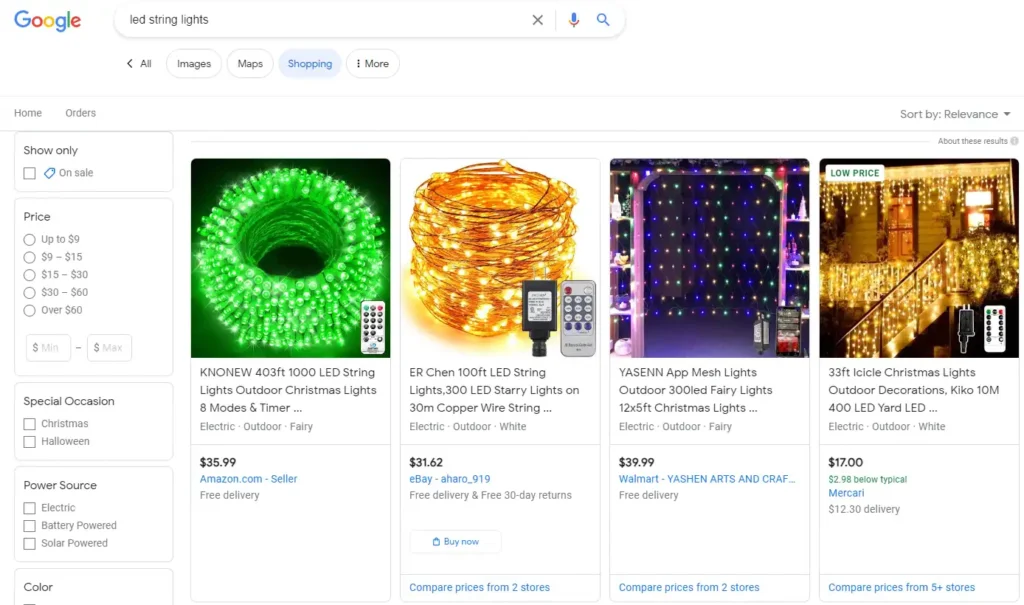
For e-commerce businesses, having a presence on Google Merchant Center can greatly improve their SEO.
This platform allows businesses to showcase their products and prices on Google’s search results, making it easier for customers to find and purchase their products.
The steps for creating a Google Merchant Center account are:
- Create a Google account
- Set up a payment method
- Upload your product listings and verify the website
- Link the Google Merchant Center account to your Google Ads account
Customer Reviews
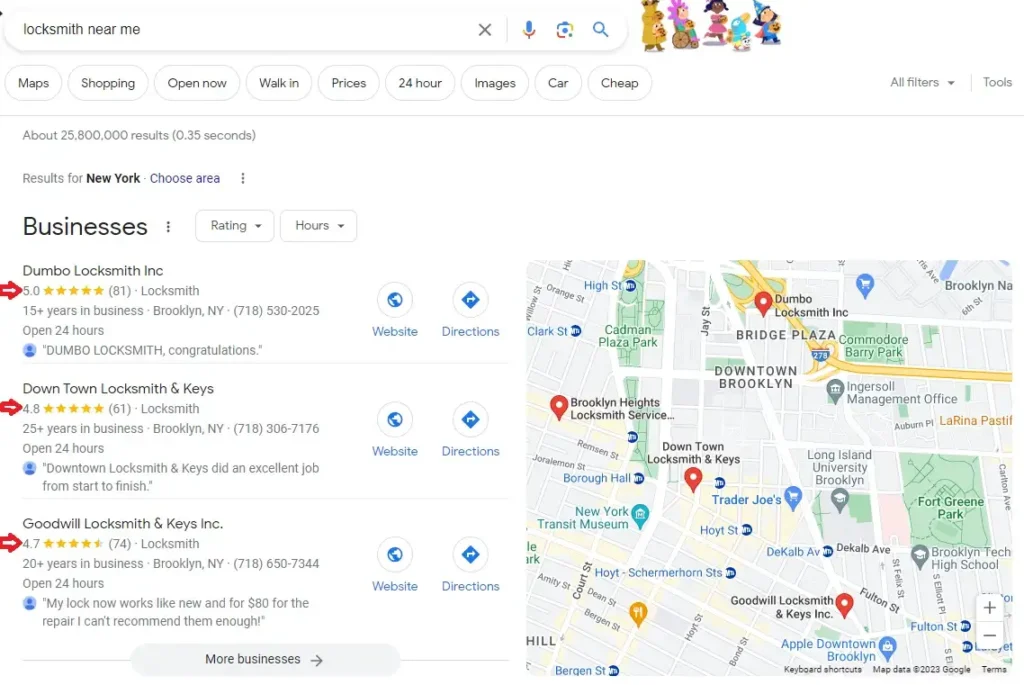
Customer reviews have become an important factor in a customer’s decision-making process.
Positive reviews can build trust and credibility for a B2C business, while negative reviews can have a significant impact on their reputation.
To manage and improve their online reviews, businesses should actively encourage customers to leave reviews, respond promptly to any negative feedback, and address any issues raised by customers.
Good review platforms to consider include Google My Business, Yelp, and Facebook.
Implement Structured Data
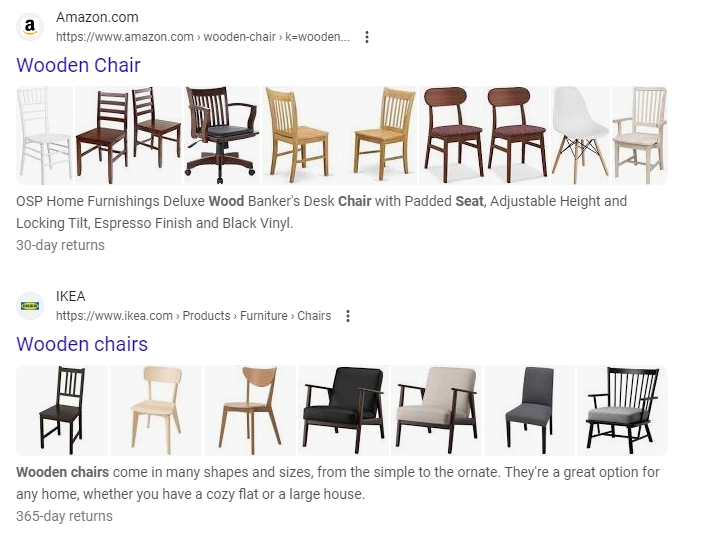
Structured data, also known as schema markup, is a way of organizing and labeling website content to make it easier for search engines to understand.
For a B2C business schemas like Product, LocalBusiness, and Review can be particularly useful.
By implementing structured data, businesses can improve their chances of appearing in rich snippets on search engine results pages, which can increase visibility and click-through rates, especially on Mobile.
E-commerce businesses can also use structured data to display product information, prices, and customer reviews directly on Google’s search results page, making it easier for customers to make purchasing decisions.
Want More Traffic?
Images and Thumbnails (For E-commerce)
High-quality images can make a significant impact on the success of an online store.
To optimize images for SEO, use descriptive file names and alt text, compress them to improve page load speed, and add relevant keywords to image titles and captions.
Use original and eye-catching images to engage customers and showcase products effectively.
Make sure that the image’s pixels are appropriately optimized for different devices and screen sizes.
In addition to product images, consider including lifestyle or contextual images to help customers visualize how the product can be used in real life.
Thumbnails, which are smaller versions of images used to preview or navigate through a collection of products, can also improve SEO by providing more opportunities for relevant keywords and descriptions.
Make sure that thumbnails accurately represent the product and include alt text as well.
Semantics
While traditional SEO focuses on finding the right keywords to target, semantic SEO goes a step further by understanding the meaning behind those keywords and how they relate to each other.
This approach takes into account the user’s intent and context, providing more relevant and personalized search results.
To optimize for semantic SEO, businesses should focus on creating high-quality content that answers commonly asked questions about their products or services and incorporates related terms and concepts.
For example, when looking for “winter boots“, a user may also be interested in “cold weather footwear” or “snow boots“.
Including these terms in the content can help search engines understand the context and rank the page higher for relevant searches.
Additionally, having a well-organized website structure and internal linking can make it easier for search engines to crawl and understand the content on your site.
Create a Facebook Business Page
Having a presence on social media, particularly Facebook, is crucial for businesses today.
Not only does it provide exposure to a large audience, but it also allows businesses to engage with their customers and build relationships as well as reviews.
To create a Facebook Business Page, follow these steps:
- Create a personal Facebook account
- Click on the “Create” button in the top right corner and select “Page”
- Choose a category for your business and fill in the necessary information
- Add a profile picture and cover photo that represents your brand
- Start posting content and engaging with followers to build your online presence.
Voice Search Optimization
With the increasing popularity of virtual assistants like Siri, Alexa, and Google Assistant, voice search has become a crucial aspect of SEO.
B2C businesses should consider optimizing their content for voice search by using long-tail keywords and natural language in their website’s content.
For example, searches like “good locksmith near me” or “where can I find a reliable plumber?” are more likely to be used in voice search compared to traditional text-based searches.
Social Media Marketing
Social media can be a powerful tool for B2C businesses, as it allows them to connect with their target audience and promote their products or services.
The combination of SEO and SMO (social media optimization) can increase the chances of a business’s content being shared and reaching a wider audience.
Some effective social media marketing tactics to consider include:
- Creating engaging and shareable content
- Utilizing relevant hashtags and keywords
- Running targeted ads on social media platforms
- Collaborating with influencers or other businesses in your niche for cross-promotion
By incorporating these strategies into their overall SEO plan, B2C businesses can increase their online visibility and attract more potential customers.
Content Marketing
High-quality and relevant content is essential for B2C SEO. This includes creating blog posts, product descriptions, and other types of content that are optimized with relevant keywords to attract potential customers.
Having a well-rounded content marketing strategy can help improve your website’s blog authority as well as your brand’s online reputation.
User Experience (UX)
User experience plays a significant role in SEO and overall customer satisfaction.
A well-designed website that is easy to navigate and provides a seamless browsing experience can not only improve search engine rankings but also encourage visitors to stay on the site longer and potentially make a purchase.
Also, SEO and accessibility go hand in hand and by improving EX, businesses can make their website more accessible to users with disabilities, which can significantly expand their target audience.
Some key elements of a good user experience include:
- Fast loading speed
- Mobile-friendliness
- Easy navigation
- Colors and font choices that are easy on the eyes
- Clear and concise content
- Captions or transcripts for multimedia content
Conclusion
In conclusion, B2C businesses can greatly benefit from incorporating SEO into their marketing strategy.
To attract a larger customer base and enhance online visibility, businesses should focus on understanding and incorporating relevant keywords, crafting captivating content, and prioritizing user experience.
It is crucial to continuously evaluate and adapt SEO strategies to outpace competitors and effectively reach a broader audience through diverse channels.
Keep in mind that SEO is an ever-evolving process, so it’s important to stay up-to-date with industry trends and adapt accordingly.

Moshe Ben Haim
Moshe Ben Haim is an SEO expert and the founder and CEO of B.H Digital.
With over 7 years of experience in the field, Moshe has helped countless clients increase their visibility and reach potential customers online.
Before founding B.H Digital, Moshe worked as an SEO specialist at top-notch companies like Wix, 888 Holdings and Verbit.


